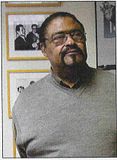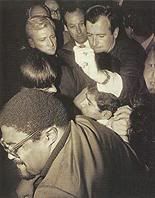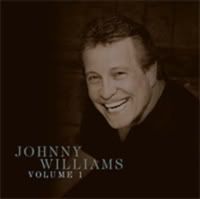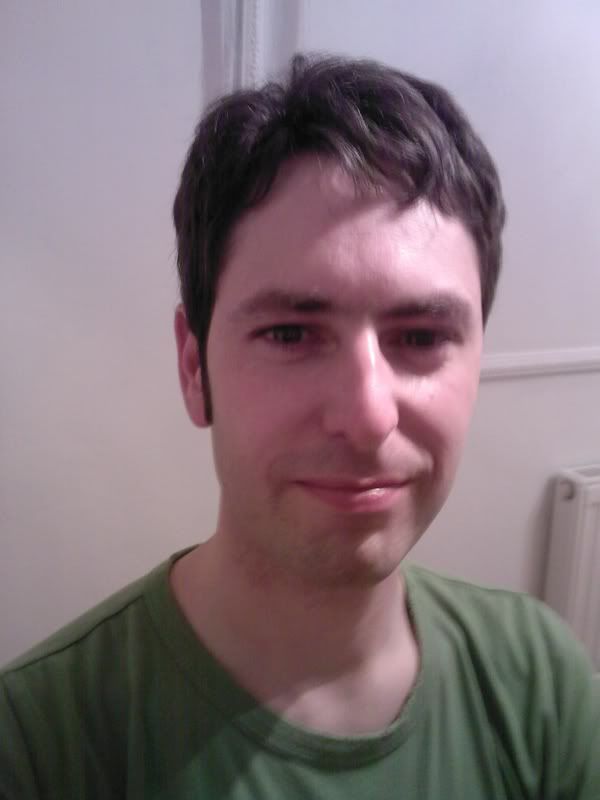
In today's Observer newspaper, there was a series of interviews with people who were present at the Ambassador Hotel on the day of Bobby Kennedy's assasination, as part of the build-up to the new film, which unfortunately will not be based upon or feature portrayals of real witnesses. Amongst the interviews was one with Roosevelt 'Rosey' Grier, football star, actor and soul singer, who had decided to work for Bobby during his campaign. I wrote about Rosey Grier in an earlier post, so I thought it would be interesting to include his recollections here:
"I had never been involved in any political campaign before, but when Bobby started to run for president, I decided to do all I could to help. This man meant so much to me. He was my hero.
I admired his sensitivity when Martin Luther King was assassinated. I was moved by the way Bobby tolk the folks in Indianapolis that King had been killed, sharing with them that his brother had also been assassinated by a white man and that color had nothing to do with it.
So I began helping out wherever I could. On the evening of the California vote, I turned up at the Ambassador. Bobby's supporters were all gathered in the Embassy Room, looking excited. Then I went to Bobby's suite where he was watching the election results come in.
As the evening wore on, it became clear that he had won, and he decided to go downstairs to the crowd. I was told to stay beside Ethel [Kennedy's wife], who was six months pregnant. We got to the elevator and I stood back because I was so large I would have prevented others getting in, but Bobby said, 'No, get in.'
As we went down, I punched him gently in the stomach - the way he had punched me the first time we met - and said we were on our way, first California, then the country. 'Not yet,' he replied. 'It's Illinois next.'
After the victory speech, Bobby jumped off the stage and went into the kitchen, and Ethel and I rushed to follow him. We were just entering the room when I heard a sound like firecrackers and then people screaming.

Ethel fell to the floor and I went to her, but the screaming got louder, so I ran forwards into the kitchen, where I saw a group [including Olympic gold-medal decathlete Rafer Johnson and writer George Plimpton] grappling with a man [Sirhan Sirhan]. I grabbed the man's legs and dragged him onto a table. There was a guy angrily twisting the killer's legs and other angry faces coming towards him, as though they were going to tear him to pieces. I fought them off. I would not let more violence happen.
And then I saw a man lying on the floor, with one knee up. I didn't know it was Bobby until he lifted his head and I saw blood by his right ear.
When Bobby Kennedy died, it changed my life completely. It was a tragedy for his children, his family and for all of us. I gave up football and became involved in trying to help young men avoid a life of violence, and now I'm a minister working to help the community.
That's something Bobby taught me: that individuals can make a difference. That was his inspiration, and God's message to us all."
Quotes by Roosevelt Grier. Interview conducted by Ed Pilkington, and published in the Observer newspaper. Photo by Bob Gumpert.






2 comments:
Hi Rob
Interesting post - I have put a link in from my blog.
http://indangerousrhythm.blogspot.com/2007/02/rosey-grier-bobby-kennedy.html
You can also hear Rosey Grier's People Make The World Go Around.
Cheers and keep up the good work!!
Colin
Nicee blog post
Post a Comment